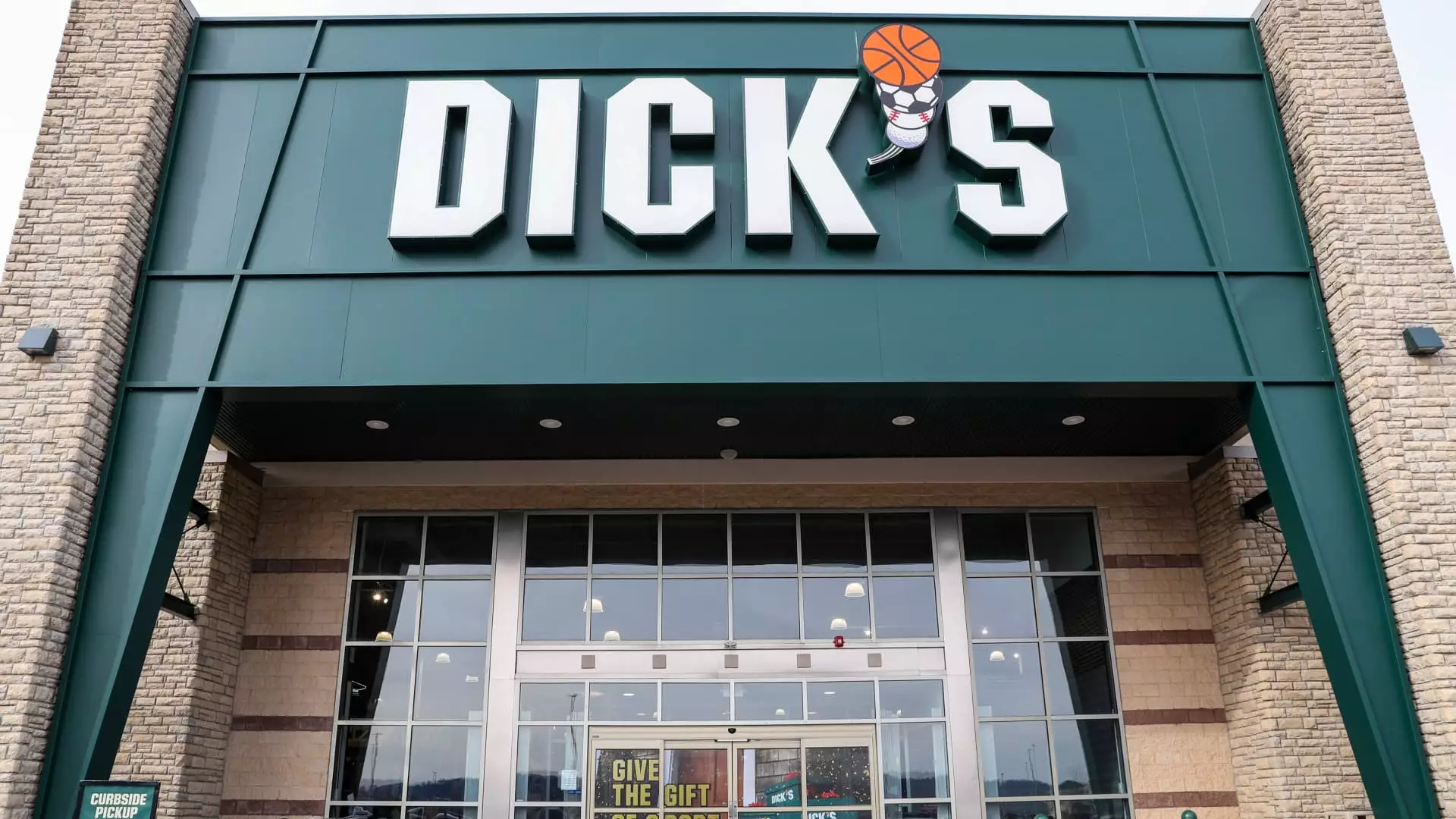The latest results from Walmart expose a troubling reality for one of America’s most trusted retailers. Despite being a giant among big-box stores, Walmart’s shares registered a 1% decline after revealing it had fallen short of first-quarter sales expectations. The company generated $165.61 billion in revenue, which, although substantial, did not meet the market’s consensus forecast of $165.84 billion. More worrisome is the management’s warning regarding impending price increases prompted by tariffs, hinting that consumers may soon feel the crunch in their wallets. In a capitalist economy where pricing power is vital, Walmart’s situation is indicative of the broader challenges that American consumers face today.
Amidst this backdrop, Walmart’s adjusted earnings of 61 cents per share do provide a silver lining—beating expectations of 58 cents. Yet, this small victory pales in comparison to the looming specter of inflation, where consistently rising costs threaten to alienate even the most loyal customers. This begs the question: can America’s retail titan adapt swiftly enough to counter the economic pressures that are forcing consumers to tighten their belts?
Disruption in the Sports Retail Sphere
In an audacious move that shocked the market, Dick’s Sporting Goods made headlines by announcing its impending acquisition of Foot Locker for a staggering $2.4 billion. However, the reaction to this bold strategy was far from celebratory. Shares in Dick’s plunged by 14% immediately following the news, signaling apprehensions about overreach in an increasingly competitive market space. Meanwhile, Foot Locker experienced a staggering 85% surge in its shares, reflecting investors’ enthusiasm towards a merger that could reshape the status quo in sports retail.
One cannot overlook the implications of this acquisition as an example of desperation rather than strategic foresight. While the justification may stem from a desire to consolidate and dominate the market, it’s not without risks. Questions surrounding cultural fit, customer base overlap, and operational integration loom large. The volatility witnessed in the weeks following this announcement could hint at a potential misallocation of resources at a time when the retail landscape is laden with uncertainties.
Health Sector Turmoil: UnitedHealth’s Stark Realities
Perhaps the most alarming news came from UnitedHealth, whose shares plunged 15% upon allegations of being under investigation by the Justice Department for potential Medicare fraud. In an industry where trust and reliability are paramount, such allegations can erode consumer confidence and invite intrusive scrutiny from regulators.
The share price dive, bringing it to an all-time low, symbolizes a broader issue in the health insurance sector—compliance and ethical challenges increasingly shadow companies with their eyes on both profit and well-being. As scrutiny heightens on such organizations, it becomes crucial to evaluate whether the health care system as a whole can thrive under the burden of such allegations. Genuine concern for the welfare of patients must transcend profit motives to rebuild trust in a system already fractured by costly premiums and inadequate access.
The Digital Downturn: Coinbase’s Cybersecurity Nightmares
In the world of digital currency, Coinbase’s recent activities reveal the precarious nature of cyber security and the potential ramifications on stock prices. Shares fell over 4% after the platform disclosed that hackers had successfully bribed employees to compromise customer data. In a world where trust is currency, the $20 million ransom that the hackers now demand could imply existential threats to the company’s credibility.
Amidst the ongoing cryptocurrency hype, Coinbase’s predicament underlines vulnerability within this nascent sector. With cyberattacks on the rise, how do firms like Coinbase safeguard their reputations and operations? This situation casts a long shadow over the legitimacy of digital currencies, inviting skepticism from potential investors who fear being embroiled in future breaches.
Unexpected Upswings: Boot Barn’s Remarkable Resilience
Interestingly, not all company news paints a dour picture. Boot Barn, the Western apparel retailer, saw its shares surge nearly 17% despite falling short of fiscal fourth-quarter estimates. Their forecast of growing same-store sales and a stock buyback of up to $200 million indicates a strong commitment to provide value to shareholders, instilling a sense of confidence that is elusive in today’s economy.
In an era rife with uncertainty, Boot Barn’s performance raises the question of what defines resilience in the face of adversity. In a diversified landscape, those companies that can remain agile while anticipating consumer trends may stand the best chance at thriving—even escalating amidst tribulations. Their performance serves as a beacon for others to consider adaptation strategies that prioritize investor confidence and consumer engagement.

